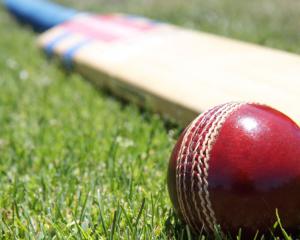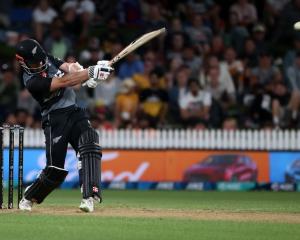
The souvenir bat, far from being a dusty relic, is personally autographed by the New Zealand team which toured the British Isles in 1927.
Notable opponents to have signed the bat include England opening batsman Herbert Sutcliffe, and England bowlers Harold Larwood and Sydney Barnes.
The trio are among some of the best to have played the game.
Otago Cricket Association chief executive Ross Dykes said he was delighted to have secured a slice of New Zealand cricket history.
"Given we are starting to build memorabilia in the long room, this is a pretty important piece to add to our collection," Dykes said.
The bat was spotted by Otago cricket enthusiast Alistair Calvert at the Ham and Petersham Cricket Club just outside London late last year.
He informed Otago Cricket and the association approached the club in the hope of purchasing it.
The bat was authenticated by the MCC and valued at 950 (about $NZ3000 at the time) "which satisfied both seller and buyer".
Nine members of the Otago cricket community, including Dykes, put in money to buy the souvenir.
The New Zealand side, led by Tom Lowry, was the first New Zealand team to tour the British Isles and included some very accomplished players such as Otago's Roger Blunt and Wellington's Stewie Dempster.
They played 40 games on the tour, which lasted five months.
Blunt was the leading scorer with 1540 runs at an average of 44.
He also took 77 wickets at 25.29.
Canterbury's William Merritt was the leading wicket-taker with 108 scalps at 23.43.
Three years later, in 1930, New Zealand played its first test against England, at Lancaster Park.
The man who got the best view of Bert Sutcliffe's record innings of 385 died in Invercargill last week.
Alan William Gilbertson shared in a 182-run stand for the seventh wicket with Sutcliffe against Canterbury at Lancaster Park in December 1952.
Sutcliffe's mammoth innings remains the highest individual tally scored in New Zealand.
Otago won the match by an innings and 93 runs.
Gilbertson's contribution of 29 was the second-equal highest (there were 29 extras conceded) and helped Otago reach an imposing total of 500.
He played eight first-class matches for Otago.











